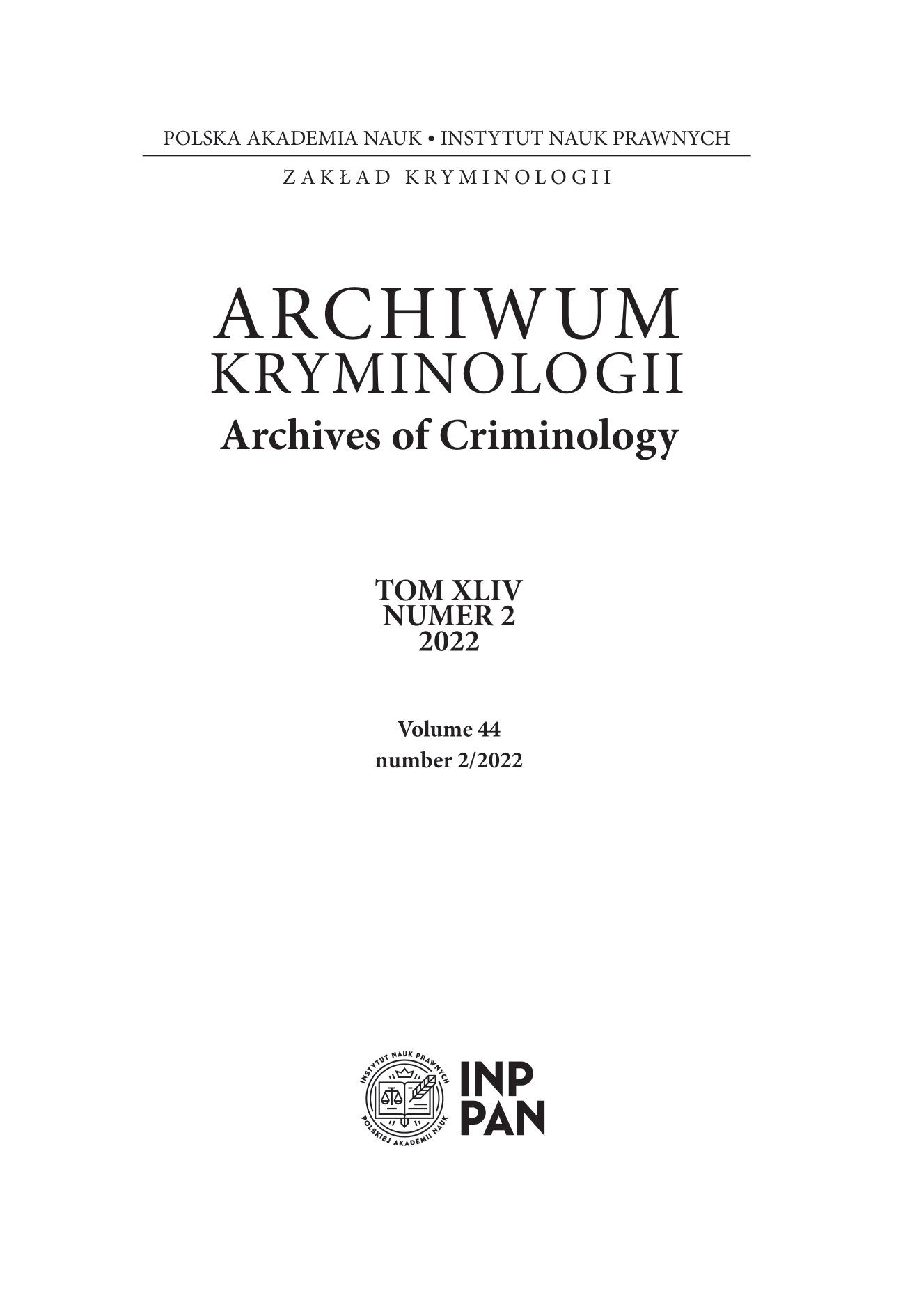Zrozumieć odstąpienie od przestępczości. Definicje, teorie i kierunki badań empirycznych
Understanding desistance from crime: Definitions, theories and directions for empirical research
Author(s): Krzysztof BielSubject(s): Criminal Law, Criminology
Published by: Instytut Nauk Prawnych PAN
Keywords: desistance from crime; definitions of desistance; theoretical perspectives on desistance; subjective and structural factors; empirical research;
Summary/Abstract: Desistance from crime has been a dominant research category in criminology and resocialisation pedagogy for more than 30 years. In Poland, however, it is not a well-known or commonly researched topic. The peculiarity of the broad stream of research on desistance from crime is that it does not explain why people commit crimes, but rather seeks to explain why people end their criminal careers. The aim of this article is to present recent findings on the definition of desistance from crime and theoretical perspectives that explain the mechanisms of change in the process of desistance. In addition, possible directions for empirical research in the field of criminology and resocialisation pedagogy which may be applicable in our country and which may enrich our understanding of the process of desistance from crime are indicated.
Journal: Archiwum Kryminologii
- Issue Year: 2/2022
- Issue No: XLIV
- Page Range: 149-184
- Page Count: 36
- Language: Polish

